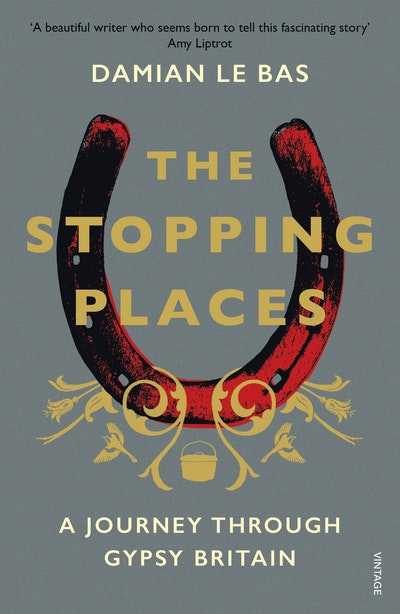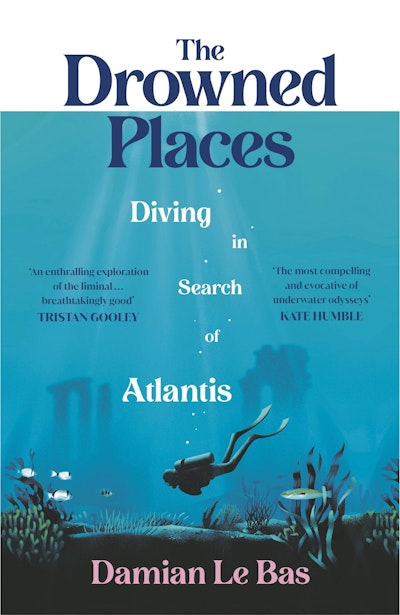- Published: 7 May 2019
- ISBN: 9781784704131
- Imprint: Vintage
- Format: Paperback
- Pages: 320
- RRP: $29.99
The Stopping Places
A Journey Through Gypsy Britain
- Published: 7 May 2019
- ISBN: 9781784704131
- Imprint: Vintage
- Format: Paperback
- Pages: 320
- RRP: $29.99
This enthralling, eye-opening and beautifully written book takes the form of an odyssey through Gypsy Britain and its history
Caroline Sanderson, Editor’s Choice, The Bookseller
The Stopping Places is a beautiful book about belonging: both a map of a secret landscape and a rich, thoughtful memoir of a divided life. Damian Le Bas is the perfect guide to this often-overlooked geography. He is a scholar-Gypsy whose writing is lyrical, informed, and deeply humane
Jon Day
An insight into the hidden world and culture of travelling people, written with delicacy and affection
Ken Loach
An illuminating journey into a British culture and landscape about which most of us know nothing. This is a beautiful, important and revelatory book from a graceful new voice
Patrick Barkham
This book moves at the pace of a horse pulling a Gypsy wagon. It’s wonderful. Slow down and relax as Damian takes you on his year-long journey seeking out the places in the UK – the atchin tans - where his people, the Romany Gypsies, have stopped, worked, lived, loved and fought since time immemorial. It’s a delicate balance between romance and history, information and folklore, language, history, keen observations of people, deep love of nature , the minutiae of daily routine and glimpses into his own personal life, all in easy prose that frequently slips into poetry. A breath of very fresh air
Peggy Seeger
In The Stopping Places, Damian Le Bas takes us on a fascinating journey through Gypsy Britain. Full of spark, tenderness and lyricism, this beautiful book reveals to us a world still largely secret, complex with enchantment and unease, rich language and blood ties, rough weather and shining poetry. Le Bas is a wonderful guide, open-hearted and curious, always respectful, as he ventures into the past and present of his own community, seeking what it means to roam and to belong
Liz Berry
Tender and intensely lyrical ... the prose is pure delight. The author breathes life into everything he sees ... To read The Stopping Places is to better understand the curious history of the Roma and how they have survived into 21st-century Britain
Jackie Annesley, The Sunday Times
I loved Damian Le Bas’s beautiful, questioning memoir, at once an introduction into a hidden world and a profound meditation on belonging and difference
Olivia Laing
A fine prose style, vividly conjuring the smell of a hop pillow, the whinnying of a horse fair and the ‘wet-look hairstyles’ of the men, as well as the dead cold of a wagon in winter... An element of memoir clings to this excellent account of folk most of us don’t understand... The end of the book hints at redemption, as Le Bas comes to terms with the conflicts of his dual world. But he is too good a writer to make a meal of it
Sara Wheeler, The Spectator
Lyrical and keenly researched
Tim Adams, Observer
[An] enthralling and eye-opening memoir
Caroline Sanderson, Sunday Express
The book is consistently both enjoyable and eye-opening – a real achievement
Robert O'Brien, Tablet
Beautifully written and deeply affecting… While this is a beautiful, important book about Gypsy culture, it’s also a moving exploration of what it means to belong
Clover Stroud, Daily Telegraph
Le Bas is a thoughtful writer, observant of nature and with a lovely turn of phrase... by turn lyrical, edgy and wistful... the book is rich with lore and history
Kathleen Jamie, New Statesman
A beautiful writer who seems born to tell this fascinating story. It's brilliantly researched, avoiding stereotype and explaining misconceptions, while showing what is vital and special about modern traveller culture
Amy Liptrot
He conjures up soaring, poetic descriptions of his surroundings... But The Stopping Places is more than a travelogue. It is also a colourful dive into gypsy culture, history and language... The Stopping Places is an enjoyable and enlightening account of an overlooked part of British society
The Economist
Fascinating
The Mail on Sunday
A delicate description of a life split between two identities... Le Bas has a cinematic writing style that shifts between images, memory and history. He deftly traces the origins of his people, the language and persecutions as well as modern British hypocrisies... This is a thoroughly enjoyable read that manages a near-perfect balance of the personal and political
Morgan Meaker, Prospect
The book resulting from Le Bas’s decision to know this roots better is a remarkable, deeply humane, utterly engaging and elegiac one
James Sharpe, Literary Review




